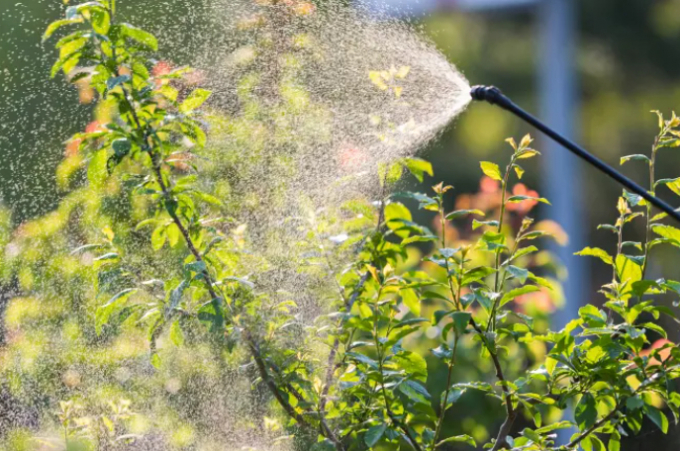May 29, 2025 | 16:13 GMT +7
May 29, 2025 | 16:13 GMT +7
Hotline: 0913.378.918
May 29, 2025 | 16:13 GMT +7
Hotline: 0913.378.918

Damaging pesticides are now banned in more places, especially those open to the public Pic: Fotokostic / Shutterstock
Pesticide use has been banned from more places in France in a new decree, including private gardens, hotels, campsites, theme parks, healthcare establishments, sports facilities, and cemeteries.
The new decree came into force on July 1. It extends the scope of the Labbé law (loi Labbé), which bans the use of phytosanitary products in green spaces.
These products can no longer be used to maintain green spaces, pathways, forests, or other green areas in these spaces or attractions.
They include private spaces and those used by the public.
The full list of spaces in which pesticide use is now banned
Private residential properties, including their outdoor areas
Hotels, hostels, lodgings, camping sites and residential leisure parks
Cemeteries
Allotments;
Amusement, entertainment and recreation parks with a variety of activities and facilities;
Areas accessible to the public in areas intended for commercial and service activities;
Private access roads, green areas and rest areas in workplaces (except where necessary for safety reasons);
Areas for public use in educational establishments
Health establishments, nursing homes and health centres, including their green spaces, forests, roads or pathways accessible or open to the public
Social and medical establishments, except establishments that are providing or participating in vocational training, or providing assistance through work that could potentially lead to the use of these products, including their green spaces, their forests, their roads, or their promenades accessible or open to the public;
The homes of childcare assistants and the homes of childcare assistants who take in minors, including their green spaces;
Aerodromes assigned primarily to the Ministry of Civil Aviation, with the exception of areas where treatment is necessary for reasons of aeronautical safety or airport security;
Sports facilities.
There are two exceptions to the sports facilities rule:
Playing fields, racecourses and grass tennis courts, where access is regulated, controlled and reserved for users;
Golf courses and driving ranges. Only the tees, greens and fairways are subject to the rules.
The ban will still come into force for these specific sports facilities, but only from January 1, 2025.
The law also does not apply to:
Treatments and measures necessary for the destruction and prevention of the spread of regulated pests;
Treatments with plant protection products that are necessary to fight a serious health hazard
Plants that are threatening the survival of the historical or biological heritage, which cannot be controlled by any other means, including non-chemical methods.
It comes after pesticides have been linked to different health conditions in recent years, and subsequent laws have been brought in to demarcate their use close to housing and business properties.
This is especially true for glyphosate, which some have said is connected to severe conditions such as cancer and endocrine disorders.
Further information on the new rules can be found on the French government’s Service-public.fr information page.
(Connexionfrance)

(VAN) Vikas Rambal has quietly built a $5 billion business empire in manufacturing, property and solar, and catapulted onto the Rich List.

(VAN) Available cropland now at less than five percent, according to latest geospatial assessment from FAO and UNOSAT.

(VAN) Alt Carbon has raised $12 million in a seed round as it plans to scale its carbon dioxide removal work in the South Asian nation.

(VAN) Attempts to bring down the price of the Japanese staple have had little effect amid a cost-of-living crisis.

(VAN) Fourth most important food crop in peril as Latin America and Caribbean suffer from slow-onset climate disaster.

(VAN) Shifting market dynamics and the noise around new legislation has propelled Trouw Nutrition’s research around early life nutrition in poultry. Today, it continues to be a key area of research.

(VAN) India is concerned about its food security and the livelihoods of its farmers if more US food imports are allowed.